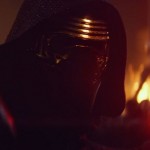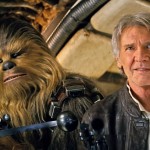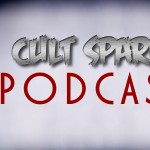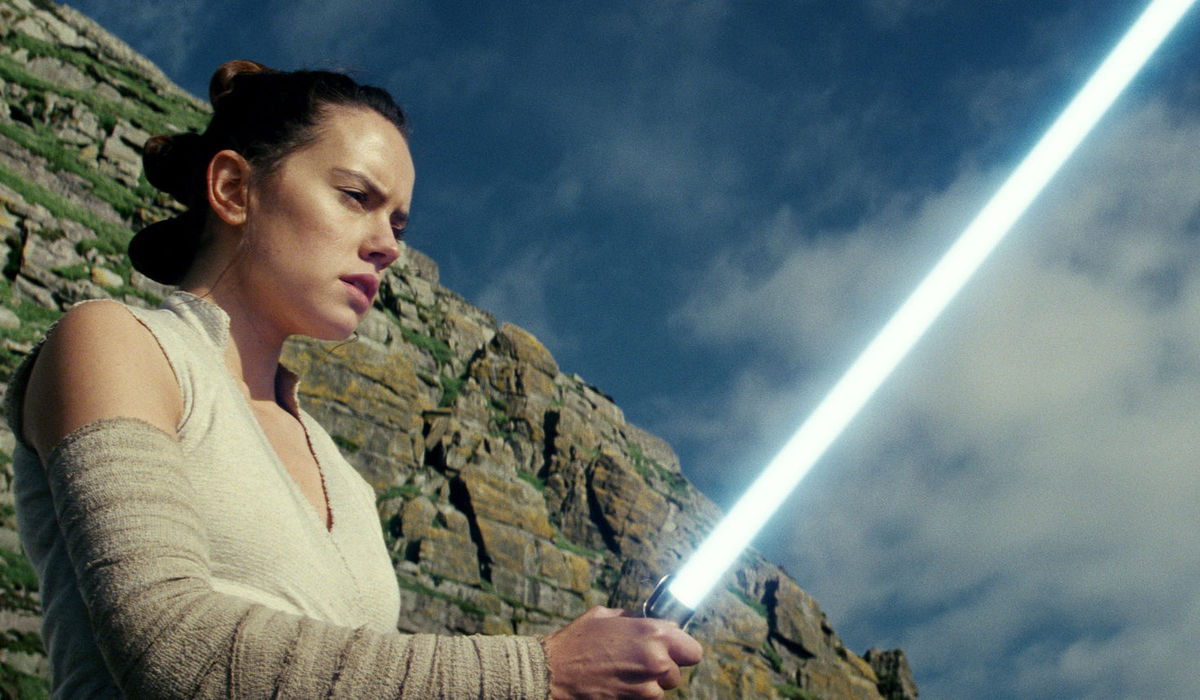
Note: This review does not reveal any of the big plot twists or surprises in The Last Jedi. You will not find out who Rey's parents are by reading this. But I do moderately dive into some of the film's plot machinations and character beats. If that sounds like more than you want to know, please save this link, go see the movie and check back with us afterward. Thanks.
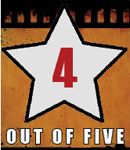
When George Lucas created Star Wars, he used the basic concept of rebellion to tell a simple pulp tale of space pirates, princesses and farmboys battling against an oppressive, evil government. Eventually, the saga got so big that pop-culture consumers began appropriating its ideals and imagery and attaching them to real-world crusades. Look no farther than the giant Princess Leia posters — with the words "We are the Resistance" printed below Carrie Fisher's 1977 visage — that were hoisted high during the Women's March on Washington last January. In the age of Trump, the simple truisms of Star Wars — that to rebel against hatefulness is a fundamental right, that the light side must always stand in contrast to the dark side — have become a crutch many folks need just to make it through their day. I think Rian Johnson is the first filmmaker to take this fact and weave it back into the fabric of a Star Wars film itself. Johnson understands that this connection of fantasy to reality is important and maybe necessary. And so the concepts of a noble rebellion and the value of hope aren't merely plot points in The Last Jedi; they're the reason the movie exists — universal truths that tether the film to the audience and back again, like mirrors lined up to face one another.
All of this is a fancy way of saying The Last Jedi has got things on its mind, man. Certainly more so than franchise-restarter The Force Awakens did. Does that automatically make it a better movie? Tough call. The Force Awakens is more efficiently paced. Whereas that movie races from start to finish like a thunderbolt, The Last Jedi lumbers along at times, cramming in more stuff than seems wise and piling on one climax after another until the third act feels like it stretches on for hours. (Hardcore fans won't care because there's so much momentous stuff happening. Casuals may find their patience a tad tested.) This is a more challenging movie than The Force Awakens. There was some thought pre-release that, this being the middle section of a new trilogy, Johnson would be putting a spin on saga high-point The Empire Strikes Back. Which starts out kind of true until you realize that Johnson is putting a spin on Empire AND Return of the Jedi AND still finding time to create something truly new and daring for the Star Wars universe. This is not a bridge film to Episode IX. It's a nearly self-contained treatise on why Star Wars is so beloved in the first place. The resulting film isn't perfect and may not always work to the degree Johnson intends, but you can't help but smile at the ambition.
So let's talk some of the story. (Again not too much. Just enough to make some critical points.) The film picks up immediately after the events of The Force Awakens. The Resistance, still led by General Leia Organa (Carrie Fisher), have been chased out of their home base by her son, Kylo Ren (Adam Driver), and the growing First Order. Escape is impossible, as the Order has developed the technology to track ships through hyperspace. All the Resistance can do is keep just far enough ahead in space to stay out of range of the Order's heavy-hitter destroyers. But their fuel is running out, and their best pilot, Poe Dameron (Oscar Isaac), worries that if they don't find a way to fight back all will be lost.
The person who could lend the biggest hand is one-time galaxy savior Luke Skywalker (Mark Hamill), although despite the pleadings of unwanted house-guest Rey, (Daisy Ridley), he has no intention of leaving his self-imposed exile. Luke is a broken man in The Last Jedi. He blames himself for Kylo Ren's turn to the dark side and has grown weary of a world that he sees as having fallen into an endless cycle of light-vs-dark turmoil. He knows Rey has a special gift but finds no point in teaching her the ways of the Jedi or joining her on a quest to fight the First Order. Meanwhile, Kylo — under immense pressure from his master, Supreme Leader Snoke (Andy Serkis) — finds a way to begin exerting his own influence over Rey. It's no surprise that the push and pull between these three makes for the movie's strongest scenes. Ridley had more shades to play in The Force Awakens, but she still makes for a fine Star Wars heroine here. Driver gets better and better the more complex Kylo Ren's ambitions become. And, best of all, Hamill — more known for voice-over work than on-screen acting since 1983's Return of the Jedi — proves more than capable of bringing back an iconic character who's changed a lot over time but still shows flashes of the eager farmboy we remember. Most of the movie's biggest surprises and emotional beats involve Luke. One scene with him in particular basically left me a puddle on the theater floor.
Back with the Resistance fleet, an out-of-his-coma Finn (John Boyega) and a Resistance maintenance worker named Rose (Kelly Marie Tran) hatch a plan that could save the Resistance, but it entails flying off to an opulent casino planet to find help. They end up procuring the services of a shady hacker (Benicio Del Toro), who insists he can get them inside the First Order ship that houses their powerful tracking equipment. Strangely, Finn's storyline works the least for me, even though it may be the one that most ties into the theme of rebellion … or, more specifically, to the notion that the smallest kernels of hope can lead to tidal waves of change for those who are oppressed. Unfortunately, the casino world just isn't all that intriguing, and Del Toro didn't do much for me. It's also surprising that Finn and newcomer Rose are basically equal partners in their section of the movie, with Rose actually being the biggest motivator most of the time. For the record, I can live with this because Tran is capable and because there's something right and honorable about putting an young Asian woman new to the series on equal footing with a young black man who is a series lead. (Yay for diversity in the galaxy!) Still, Finn was more fun and interesting last time around, and the big question he grapples with here — should he flee or fight? — is basically just a repeat.
Poe is more interesting this time, mostly because he's a much, much bigger asshole. He disobeys Leia, butts heads with another Resistance leader played by Laura Dern, and goes through a lot of growing pains over the course of the movie to become something greater than the cocksure-but-reckless pilot we met in The Force Awakens. It's a nice arc for the character; similar to Han Solo's over the course of the original trilogy but different enough to be its own thing. Isaac, of course, is charming and dreamy no matter how prickly Poe can be. This franchise continues to be lucky to have him.
For a good chunk of the movie, these three plotlines play out separately before they inevitably start colliding. This is where I stop with the specifics, but just know Johnson takes the story in directions impossible to predict. Characters make shocking choices. Fast ones are pulled over on the villains and the audience. There are multiple acts of self-sacrifice (too many, if you ask me). Johnson finds time to weave in a surprising sub-theme about war profiteering. The Last Jedi is two and a half hours for a reason, people. And even still, there are beloved Star Wars characters who get the short shrift. Han's death is acknowledged in touching but very brief ways. Chewbacca is barely in the movie. In fact, the Porgs — who really turn out to be much ado about nothing — are only around to give the big furry guy something to do for the couple of minutes he's on screen. The droids are also non-factors, with Threepio and Artoo pushed further into the background and BB-8 not getting a moment to match his "thumbs up" from The Force Awakens. (I'm going to hazard a guess that there was a lot of BB-8 stuff that hit the cutting-room floor.) Still, Johnson does his best to please all factions of Star Wars fandom while also making sure there's real weight to every laser blast fired. He was an excellent choice to bring into the Lucasfilm fold.
Thanks largely the Lucas's original three Star Wars films, movie-goers have learned to consume these things as trilogies, where things are set up in the first film, escalated in the second and then wrapped up in the third. But Johnson clearly has no interest in templates, and, with The Last Jedi, he's shattered that paradigm. In fact, I'm convinced he gave no more than two minutes of thought to what a returning J.J. Abrams is going to have to work with for Episode IX. It feels like he sunk everything he had to say about these characters into this single film. The end result is a Star Wars movie that I'd be totally fine with being the last one I ever saw, if circumstances somehow dictated it so. That's not to say I don't want to see more (I do!) or there aren't character and story threads still dangling (there are!). But this is a complete and assured work that says what it wants to say about a galaxy far, far away without worrying about its place in the saga at large.


